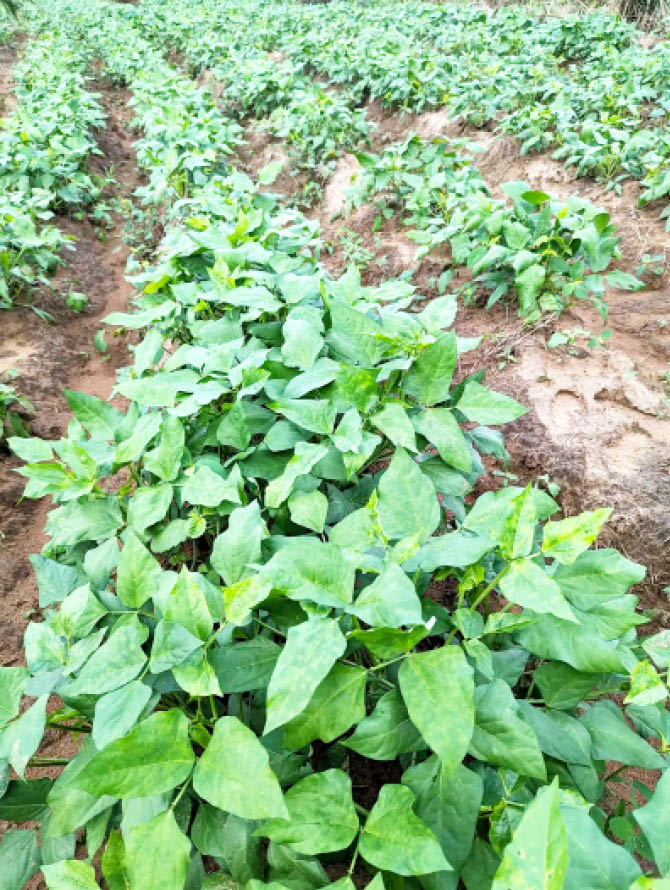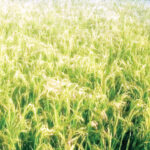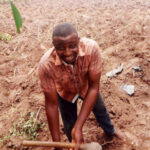Majority of peasant farmers in Benue State have lamented poor access to improved cowpea and soybean seeds for planting.
Andrew Nabem, a soybean farmer, lamented that farming the crop had become challenging in the state as farmers either lacked access or were unaware of new varieties of seeds.
He said, “Some time ago we were to have seeds for 1,000 farmers but could hardly access the seeds for 50 hectares despite so much awareness created by USAID and other bodies. The seeds of different varieties were hardly accessed, so instead we planted other grains.
“We have an association of over 3,000 farmers, but our challenge is mostly lack of seeds. Our association is ready to work in clusters with seed companies across the state in order to access the seeds.
- Farmers in Niger pay bandits, yet get attacked
- Feeding your animals rightly more profitable – Young farmer
“If we work together with the producers of seeds, we will see the results on our fields. For soybean farming, seed is always the problem. Seed companies need to sit up because if we appreciate the seeds they make, we will patronise them.”
In the same vein, cowpea farmers like Aboje Idoko decried the high cost of insecticides.
Idoko said that the government should intervene in cutting the cost of cowpea production with the provision of insecticides.
Our correspondent reports that it was for this reason that the Accelerated Varietal Improvement and Seed Delivery of Legumes and Cereals in Africa (AVISA), an initiative aimed at enhancing agricultural productivity and food security in Africa; and Seed Equal organised a one-day pre-season and planning meeting in Makurdi a few days ago to cover strategies for sustaining legume seeds delivery.
AVISA, which focuses on improving the breeding and delivery of high-yielding and resilient varieties of legumes and cereals, is expected to help Benue farmers break new grounds, especially in soybean and cowpea production.
Expectedly, AVISA and Seed Equal, implemented in Nigeria, aim to ensure Benue farmers uptake of newly released improved public-bred varieties and innovations. This will be achieved through improving success to quality and affordable seeds, climate-smart, nutrient-dense and marketable cowpea and soybean varieties.
To this end, a critical mass of actors, partnerships and innovative methods are required to achieve this and that is why capacity-building activities have been planned to retool the National Agricultural Research System (NARS), Non-Governmental Organisations (NGOs), extension staff and farmer groups working on producing and delivering seeds of different classes.
At the meeting, Dr John Okoh harped on the importance of using improved quality seeds, stressing that improved seeds improved life.
He said, “If you have a good seed genetically, the environment and genetics can influence them.”
Therefore, he pointed out the need for seed makers to consider climate change and other factors when improving on varieties.
On his part, the representative of the Director General of the Benue State Bureau for Agricultural Development, Engr Terese Ninga, outlined the state government’s intervention to aid cowpea and soybean seeds production to include providing spaces in 11 out of the 23 local government areas of the state for cultivation.
He said, “We wish to cultivate 1,500 hectares across the state using 11 LGAs. We are also reaching out to our cowpea/soybean farmers with new technologies.”
The Coordinator of the Nigerian Export Promotion Council (NEPC), Benue Office, Friday Ogiri, who expressed joy that cowpea production was increasing in the state, applauded the state for being one of the leading exporters of soybean in the country.
He listed countries topping soybean exports to include Brazil, USA, Argentina and Paraguay, noting that Nigeria was seen as a minor exporter.
Ogiri identified China as the highest buyer of soybean while America remained the highest producer in the world.
For Dr Teryima Iorlamem (AVISA) and Nater Iyorkaa (Seed Equal), the meeting was a review of the progress made to enhance cowpea and soybean seeds system activities in Nigeria.
Iorlamem, while discussing ongoing interventions to support cowpea and soybean delivery in Nigeria, appealed to the state government to include cowpea and soybean whenever planning for farmers during the planting season.
He said, “Our problem in cowpea is insecticides; not fertiliser. Government hasn’t planned for legumes this year. We also have challenges exporting cowpea.”
Iorlamem, a seed system expert at the Joseph Sarwuan Tarka University, Makurdi (JOSTUM), formerly known as Federal University of Agriculture, Makurdi (FUAM), assured both farmers and seed developers that AVISA would ensure that all their concerns were addressed.
The meeting further highlighted strategies for promoting legume seeds and marketing by seed companies; challenges encountered in the off-taker/aggregator mode implementation and solutions; what incentives can stimulate the growth of legume seeds business, as well as looking at the challenges, economic motives, environment, personal values, among others.
Iyorkaa on his part intimated that the meeting was organised in collaboration with the International Institute of Tropical Agriculture-Joseph Sarwuan Tarka University, Makurdi (IITA – JOSTUM).
He explained that while AVISA was targeted at accelerating the availability of improved varieties of cowpea to smallholder farmers, Seed Equal on the other hand was targeted at enhancing the genetic gains of improved soybean varieties.
He said, “Both projects are seed systems. Therefore, the meeting is to bring stakeholders in the two products (cowpea and soybean) to reason and proffer solutions to ensuring smooth seed availability to farmers.”
At the end of the meeting, it was resolved that the projects’ activities (demonstration, seed multiplication and distribution) would be carried out by project management and seed companies while the activities such as training and fairs would be carried out by project management and every other actor involved.

 Join Daily Trust WhatsApp Community For Quick Access To News and Happenings Around You.
Join Daily Trust WhatsApp Community For Quick Access To News and Happenings Around You.


